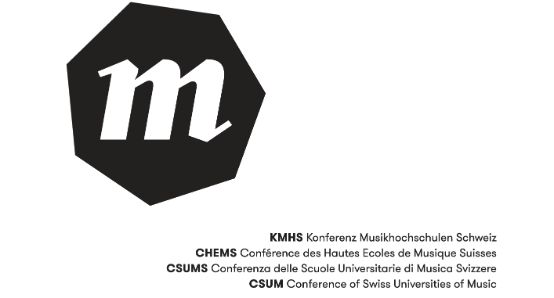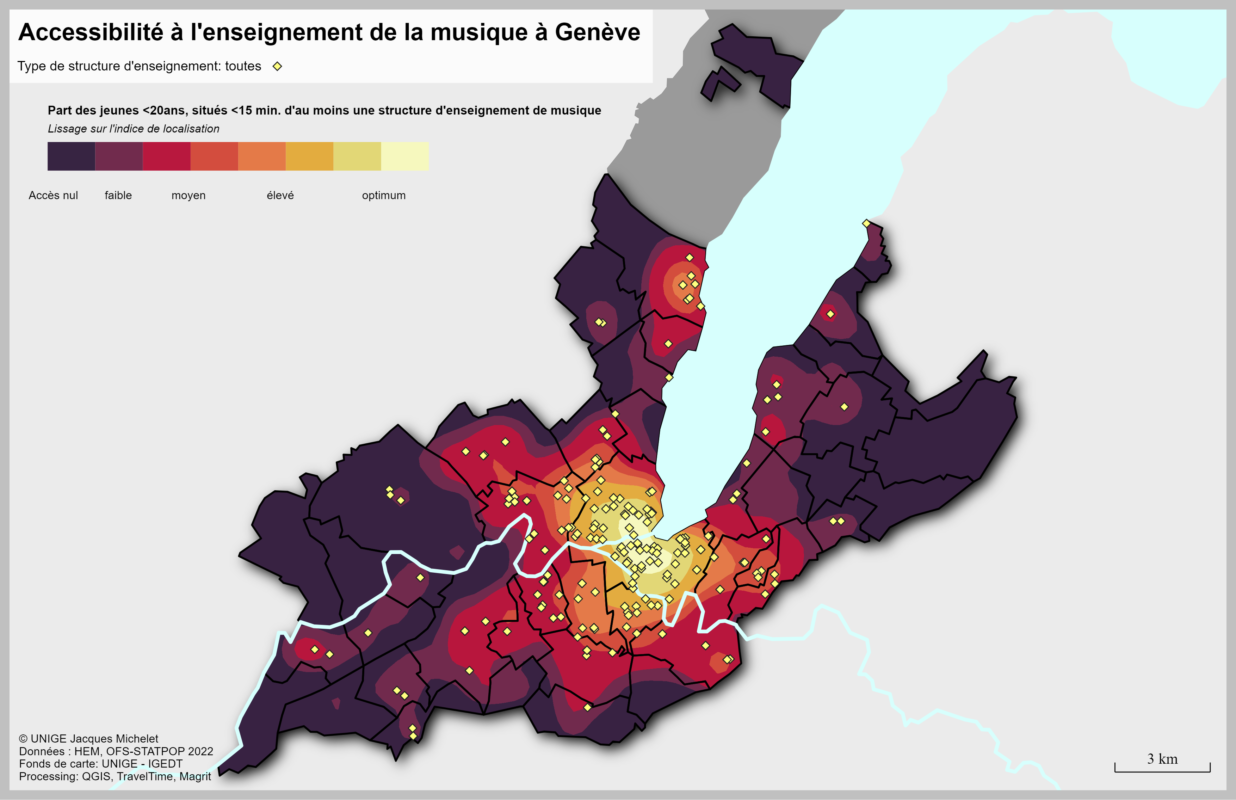Time in professional music studies

From the point of view of students and the creation and management of artistic curricula, with the revamping of Master's degrees in music initiated in various parts of the country, how can we find the tempo giusto within tertiary music studies?
Antoine Gilliéron - By examining the fundamental dimension of time in music through the prism of a cross-interview with three young students from the country's Hautes Écoles de Musique, this article humbly sets out to provide some answers to this question... and to pose others!
Adèle Chavanne, you're a student at ZHdK in the first year of a Master's degree in music theory. How is your study time invested (instrumental practice, networking, chamber music, theory courses, cross-disciplinary skills, etc.)? And approximately what percentage?
Da ich kein Instrumentalstudium im eigentlichen Sinne mache, unterscheidet sich mein Stundenplan von den anderen gängigen Stun-denplänen der Musikstudent:innen Ich habe sowohl Einzelunterricht in Musiktheorie und Kurse, die mit Theorie zu tun haben, wie Instrumentation, Analyse oder Solfège als auch viel Klavierpraxis. Das Ange-bot der etwa 100 fakultativen Wahlfächer interessiert mich sehr, dennoch habe ich mich dazu entschlossen, nicht allzu viele Wahlfächer zu belegen, da ich ausserhalb des Studiums viel mit der Musik be-schäftigt bin. In meiner Freizeit nehme ich beispielsweise auch Gesangsunterricht, da mich das sehr interessiert.
Do you think you have enough time during your music studies to acquire generic and broader skills that could be useful beyond music?
Jede:r Student:in teilt sich die Zeit für das Studium und die Zeit, die für das Studium investiert wird unterschiedlich ein. Das optimale Pensum ist meiner Meinung nach auch davon abhängig, was für Ziele ich mir stecke. Für mich ist ent-scheidend, dass ich neben meinem Studium davon profitiere andere Dinge - wie Freiwilligenarbeit - zu tun, die meine Kompetenzen ausserhalb des studentischen Alltags stärken. Das Studium hat mit seinen theoretischen Anteilen und Weiterbildungsmöglichkeiten ein gutes Fundament für diese praktischen Erfahrungen gelegt. Demnach fühlte ich mich sicher mich praktischen Aufgaben anzunehmen. Die Erfahrungen, nicht lediglich in einem musikalischen Sinne, die ich da-durch sammeln konnte, haben mich sehr gestärkt und ich konnte Kompetenzen anwenden und festigen. Dieses Wissen ist mir persön-lich besonders wichtig, da ich mich nicht ausschliesslich auf ein studentisches Umfeld festlegen will und auch davon überzeugt bin, dass ich dadurch gewisse Kompetenzen erlangt habe, die mir das Studium allein nicht hätte in dieser Art vermitteln können.
Isa-Sophie Zünd, you're a student at MAB in your third year of a Bachelor's degree in classical piano. Do you feel you have enough time (both in terms of years of study and within these studies, in the year, the month, the week, the day) to develop as an artist?
Drei Jahre sind schon ziemlich kurz, ein Jahr länger wäre hilfreich. Während des Studiums habe ich eigentlich genug Zeit, wenn ich mir den Tag einteile, ab und zu ist es schwierig, einen Raum zum Üben zu finden.
What would be your ideal course of study?
An meiner Hochschule bin ich sehr zufrieden, ich würde mir einfach ein Jahr mehr wünschen.
What do you think of Switzerland's tertiary music education system and the country's HEMs, and how do they complement each other?
Die Schweiz bietet interessante Studienmöglichkeiten auf hohem Niveau sowie auch ausserhalb ein gutes Umfeld in Form von Stiftungen und Konzerten.
Aurélien Perdreau, you're a student at the HKB in the second year of a Master's degree in Contemporary art practice. Do you think, and why, that societal time is different from the time specific to the musician's craft?
Yes, in part. The organization of society, and by extension of the family, is based on "ordinary" working hours, with free time at the end of the day and days off at weekends. Yet musicians often have rehearsals or concerts on weekends and evenings, creating a staggered work rhythm. In the long term, this can lead to problems of self-empowerment outside the artistic world. But I think this state of affairs needs to be moderated for two reasons. Firstly, many other professions also have staggered working hours, so societal time is not as uniform as you might think. Secondly, as a general rule, musicians have more flexibility in their working hours, and in the way they manage their time during the day and week, than other professions. Paradoxically, this makes it easier to adapt to social constraints.
What do you think is the ideal tempo for professional music studies?
I'd say that during the Bachelor's degree, you need to learn the basic skills, build up as complete a toolbox as possible, push the technical aspects as far as possible, and play the repertoire. At Master's level, develop your personality, your music, your interpretation, assert who you are, and confront others, exchange, share, play, experiment, build a network and... have time.








